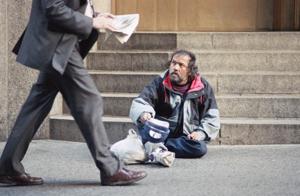 After briefly reviewing (favorably) Jacob Hacker and Paul Pierson’s Winner-Take-All Politics: How Washington Made the Rich Richer–and Turned Its Back on the Middle Class
After briefly reviewing (favorably) Jacob Hacker and Paul Pierson’s Winner-Take-All Politics: How Washington Made the Rich Richer–and Turned Its Back on the Middle Class, Ezra Klein proceeds to give his own assessment of the inequality dilemma. Why has income inequality in the US increased so dramatically since the 1970s, especially in comparison to other developed countries? His conclusion: despite extensive analysis and discussion of the issue, there have been no good answers. But he has some suggestions on where to look. Some excerpts: (emphasis added)
[W]e’re still having trouble saying just what, exactly, is causing all this. … [T]here are four good places to look for answers. One is where Hacker and Pierson focus their energies: Whatever our eventual conclusions on inequality, we’re going to have trouble acting on them if the political system can’t bring itself to care about the average American a little bit more. A second is the education system: Arguably the only persuasive explanation for what’s happened to median wages is that educational attainment leveled off in the 1970s, even as the demand for educated workers increased. Economists Claudia Goldin and Lawrence Katz estimate that this explains two-thirds of the rise in inequality, and importantly, explains it on the side of median-wage stagnation, which is what we’re most worried about. Even if that estimate is a bit high, boosting educational attainment would still be a good place to start.
Then there’s the financial system. Insofar as anything explains the run-up in the incomes of the very rich, it’s the increasing financialization of the economy. …
[T]he federal government and the Federal Reserve brought overwhelming force to their efforts to save the financial market and underwhelming force to their efforts to save the labor market. And so the rich are getting richer again, but unemployment remains above 9 percent. … [W]e at least need to recognize what it is that we keep doing: green-lighting the policies that make the rich richer or, in the case of the crisis, keep them rich, while dithering and drifting on the problems and needs of the vast middle. …
And finally, we need to recognize that Americans haven’t accepted the status quo. Rather, they’re unaware of it. … [M]ost Americans think wealth is distributed vastly more equally than it actually is. … The fact that we don’t quite know how to solve inequality and median-wage stagnation doesn’t make the situation any less urgent.
I suppose it’s refreshing for someone to come out and say we don’t understand the problem and that we don’t know what to do about it. On the other hand, it’s also distressing.
I just watched the film Inside Job, a documentary that explains the global financial crisis in simple but highly accurate terms. It includes a vivid portrait of the priorities of the richest one percent of Americans. Why aren’t more people angry about what happened? One standard answer you hear is that Americans believe they too may someday become rich. Other than winning the lottery, however, those true believers need to understand that the cards are formidably stacked against them.
Related posts:
Income inequality and American politics
Inequality and the financial crisis
The new economic reality
Union busting and the inequality of wealth
Life expectancy of the rich and the poor
The end of the American dream?
Resources:
Image: Yahoo! News
Ezra Klein, The “Hood Robin” Economy, Democracy, Spring 2011
Jacob S. Hacker and Paul Pierson, Winner-Take-All Politics: How Washington Made the Rich Richer–and Turned Its Back on the Middle Class
Inside Job, Charles Ferguson, director


Sorry, comments are closed for this post.